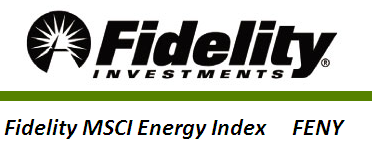The outlook for oil producers is looking good following improvement in the price of the U.S. benchmark WTI crude to more than $60 a barrel from less than $50 at the start of the year. Those who want to capitalize on oil’s recovery should consider Fidelity MSCI Energy Index ETF (NYSEARCA:FENY) which is one the cheapest funds that give investors exposure to more than 120 companies operating in the energy sector ranging from oil majors to small cap oil producers. I believe Fidelity MSCI Energy Index ETF should do well in the future as its underlying companies post earnings and cash flow growth on the back of improvement in oil prices.

Image courtesy of Pixabay
The Fidelity MSCI Energy Index ETF tracks the performance of the U.S. energy sector by following 128 energy companies. These include the vertically integrated oil majors such as Exxon Mobil (XOM), independent exploration and production companies such as EOG Resources (EOG), energy infrastructure companies such as Kinder Morgan (KMI), oil refiners such as Valero Energy (VLO), and oilfield equipment and services providers such as Schlumberger (SLB). FENY tracks the MSCI USA IMI Energy Index which is designed to capture the large, mid and small cap companies operating in the U.S. energy sector.
FENY has $518 million of assets under management which makes it a substantially smaller fund than the two energy sector’s heavyweights - the SPDR Energy Select Sector ETF (XLE) which is considered the industry’s benchmark fund and has $12 billion of assets under management and the Vanguard Energy ETF (VDE) which is the second-largest energy sector fund with $3.5 billion of assets under management. But what sets FENY apart is its low expense ratio.

Image: Author
FENY comes with an expense ratio of just 0.084%, which means that it charges $8.40 annually on each $10,000 of